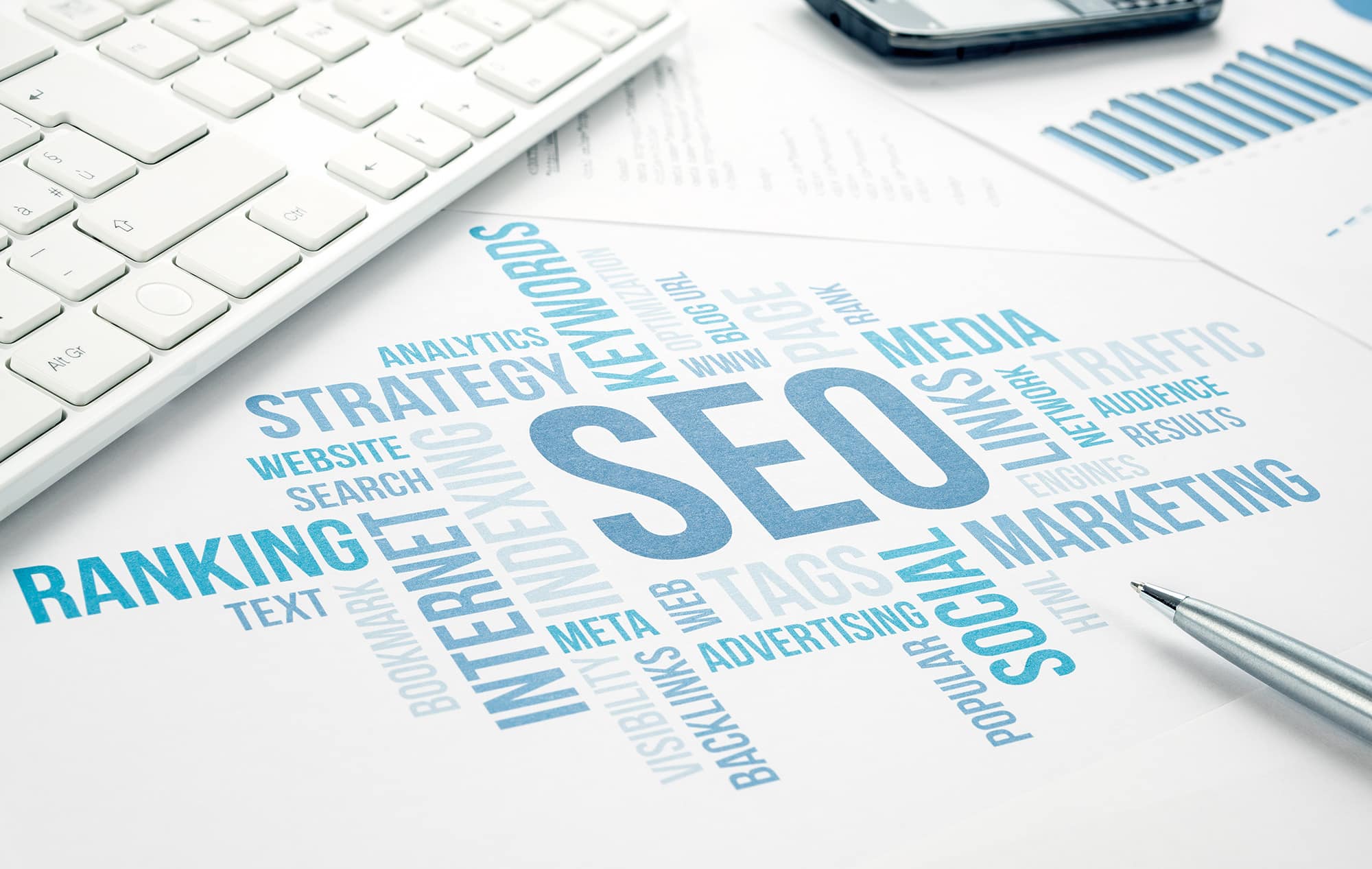Remember when ‘search engine optimization’ meant searching, downloading, and correlating data from hundreds of sources across the internet, all by hand? While today’s marketers continue to comb through extensive data, the more mundane aspects of optimization have been significantly simplified through artificial intelligence for SEO, better known as AI SEO.
AI SEO refers to using artificial intelligence, like machine learning and natural language processing (NLP), to optimize a web page to improve rankings and organic traffic on search engine results pages (SERPs). AI and SEO go hand-in-hand to amplify and accelerate the success of critical objectives like keyword research, SERP analysis, and even content creation.
Discover how today’s experts are harnessing AI SEO to maximize marketing initiatives.
- Leveraging AI keyword research to analyze competitors and identify keyword gaps.
- Enhancing content creation, including optimized content briefs, for better SEO.
- Improving site structure to support a better user experience and placement on SERPs.
- Monitoring multiple website metrics to recognize and implement necessary optimizations.
- Streamlining marketing efforts to earn better client results in a fraction of the time.
Let’s get started!
Leveraging AI for Keyword Research
Keyword research is an integral part of search engine optimization; however, it’s also one of the most laborious tasks for marketing agencies. Proper keyword research is never a simple look into Google Search Console to identify the search terms or queries users enter to find a website. Instead, it involves a deeper dive into organic keyword research and competitor keyword analysis.
Enter AI keyword research. AI keyword research uses algorithms to identify patterns between the top search terms for a website and the number of clicks, impressions, and average position for each keyword. As a result, AI SEO can accelerate the process of analyzing competitors and the terms they rank for, allowing marketers to complete in-depth keyword gap analysis quicker.
Of course, some human intervention is necessary when using artificial intelligence for SEO, particularly AI keyword research. While AI tools can rapidly gather data, like keyword gaps, they have a more challenging time deciphering the search intent for each term — like whether a user’s search was transactional or informational. It is here that marketers can apply their knowledge.
Enhancing Content Creation with AI SEO
When we think about how AI is changing SEO, one of the first things that come to mind is AI content writing. On a small scale, AI-powered apps like Grammarly use NLP functionality to make the content clearer and easier to read. On a larger scale are platforms like Jasper, which take a user’s input of relevant keywords and intent and output content optimized for SEO.
At a time when 48% of companies use some type of AI to address data quality issues, AI for SEO can help optimize existing content and improve content relevance.1 AI-powered tools help to insert relevant keywords, expand on thin content, and even generate optimized content briefs for a writer. SEO artificial intelligence is a writing tool to help marketers get content right the first time.
Maximizing Site Structure with AI SEO
AI SEO can never replace human SEO, but it can make an SEO job easier. With many algorithms and formulas, SEO using AI can skim through information at lightning speed — far faster than any human could. A natural SEO can then use the data derived from AI SEO to implement necessary changes that both maximize site structure and magnify optimization efforts.
AI SEO has been shown to help identify changes to site structure that allow for a better user experience, such as updates to page hierarchy that enable users to move through a site more accessible. Other optimizations powered by SEO include faster page load times and better performance on mobile devices, both of which contribute to improved search engine rankings for a site.

Analyzing and Optimizing Results with AI SEO
When it comes to analytics, AI SEO optimization reigns supreme. AI can help track and analyze website metrics — like traffic, engagement, and conversion rates — and apply that data to optimize marketing strategies. Additionally, as all data becomes centralized, this AI search engine optimization component can benefit marketing agencies that run multiple omnichannel campaigns.
Marketing and sales teams continue to gain the most revenue from adopting AI technologies like AI SEO. In a recent global AI study, 74% of respondents said that their organization’s marketing and sales departments witnessed revenue increases of 5% or more, whereas 30% of AI adopters cited a 10% increase in revenue after implementing AI technology.2
Why AI SEO Needs an Expert Digital Marketing Agency to Succeed
From search engine algorithms to SERPs positions, many factors of search engine optimization change rapidly. The rise of artificial intelligence has enabled marketers to finally keep up with the changing tides to streamline marketing campaigns and improve marketing initiatives’ efficacy. However, AI SEO services still need an expert agency to succeed.
Whether it’s AI keyword gap analysis or AI content creation, artificial intelligence requires oversight from marketers to guide elements like sentiment and accuracy. So while AI SEO can enhance marketing efforts, the human direction is necessary for optimal results — guidance like a digital marketing agency. To learn more about AI SEO services, contact the experts at Bullseye Strategy.
Sources:
1. https://www.semrush.com/blog/artificial-intelligence-stats/
2. https://www.statista.com/statistics/1083482/worldwide-ai-revenue-increase/















